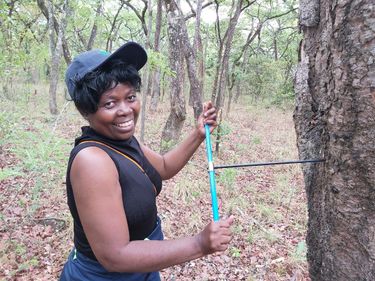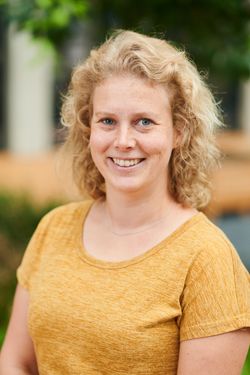
Sessions in which Raphaël Hébert participates
Tuesday 28 June, 2022
The spatial scale of climate fluctuations, or effective spatial degrees of freedom (ESDOF), depends on the timescale and the forcing: while local scale variability between far away locations may be independent on short timescales, they may become coherent over sufficiently long timescales, or if they are driven by a common forcing. While ESDOF have been estimated from instrumental data over the historical period and climate model simulations, it remains difficult to perform such analysis o...
Sessions in which Raphaël Hébert attends
Monday 27 June, 2022
MAIDENiso is a numerical process-based model that allows researchers to simulate the growth of a virtual tree. Using daily meteorological data, the model simulates the physical and physiological processes taking place in the tree and its environment, to produce daily and yearly outputs comparable to dendrological observations. The model has been adapted and used successfully in boreal regions in North America. In an inverse mode, tree-ring obs...
Blue Intensity (BI) is a cost-effective analytical method for measuring relative wood density in the rings of conifer tree species. Since early concept papers in the 1990s/2000s, there has been a recent explosion in the application of this method for both dendroclimatology and historical dating as well as other dendro-disciplines. The beauty of BI is that the analytical costs, mainly related to the cost of a h...
Free, in person and onlineWe will hold a practical, skills-based workshop introducing openDendro -- an open-source framework of the base analytic software tools used in dendrochronology in both the R and Python programming languages. openDendro is a new unified set of tree-ring analysis tools in open-source environments that provides the necessary baseline for dendro...
Tuesday 28 June, 2022
Africa is faced with a number of challenges including climate change and ecological disturbance due to various anthropogenic activities. These problems adversely affect the forests and also ecosystem services. My appreciation for the forests motivated me to pursure my undergraduate studies in Forestry. I first applied dendrochronology during my PhD research which focused on understanding the climate change vulnerability of the Zambezi teak forests in Zambia. However, lack of research facil...
Wednesday 29 June, 2022
Dendrochronology is considered one the most precise of all the scientific dating techniques. However, it requires long sequences of tree rings and a master record for both the species and region in question. At the University of Groningen, we have been pioneering a new approach to dating that combines the precision of dendrochronology with the versatility of radiocarbon dating. It relies on the detection of spikes in the annual radiocarbon record, thought to b...

